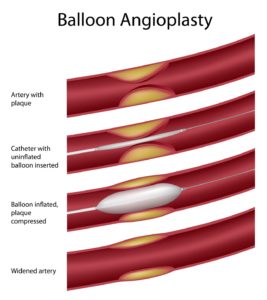“I couldn’t walk without stopping to rest my legs”
Introducing Marissa R. from Richardson, the 82-year-old mother of an existing Precision VIR vein patient. She complained of leg pain, night cramps and swelling in both legs for years. The cramps caused her to lose sleep. She couldn’t walk more than a few blocks without stopping to take a break and rest her legs. Marissa took the first step towards relief by making an appointment with the best vein doctors in Dallas at Precision VIR.
Precision VIR’s vein doctors diagnosed Marissa with chronic venous insufficiency and arterial insufficiency. This is also known as peripheral arterial disease, peripheral artery disease or PAD.
Peripheral artery disease (PAD) affects 20% of Americans 65 and older and is very common in patients with diabetes and hypertension and in patients who are smokers. PAD usually results from atherosclerosis, or hardening of the arteries. This happens when cholesterol and scar tissue build up, forming a substance called plaque inside the arteries. It can also happen when clot quickly builds up in an artery. Clogged arteries cause decreased blood flow to the legs, which can cause pain when walking, and eventually even lead to gangrene and amputation. To schedule an appointment for peripheral artery disease or PAD consultation, please call 214-382-3200 or complete the form below.
How Marissa’s Treatment Helped Her
Marissa received both the ClosureFast (previously known as Venefit™) vein ablations (RFA) and arterial angiogram with angioplasty and atherectomy procedures. When she first visited, her swelling and varicose veins were severely limiting her quality of life and Precision VIR decided to treat the veins first. During the ClosureFast procedure the best Dallas vein doctors insert an Endovenous Radiofrequency Ablation (RFA) Catheter to collapse and close enlarged leg veins. After the vein is sealed shut, blood naturally re-routes to healthy veins.

Following the vein procedure, Marissa still had pain in one of her legs, and her evaluation revealed a partial blockage in a femoral artery stent that another physician had placed years ago. Her Precision VIR doctor opened the stent with angioplasty and atherectomy, minimally invasive treatments for peripheral artery disease that Precision VIR physicians offer to directly increase the flow through the blocked or narrowed part of the artery.
Marissa is thrilled with the results and the lessening of her symptoms! The leg swelling is resolved, and she can walk further distances without pain.
Before treatment, Marissa was in a lot of pain and always wanted to lay down. Now, after treatment, she says she had “no problem walking in Mexico” on a recent trip. She adds, “I have faith in Precision VIR doctors because they know what they are doing. I have told my family and friends to come.”
Call Precision VIR to find out how you can meet the best vein doctors in Dallas and have successful results like Marissa R. To schedule an appointment please call 214-382-3200 or complete the form below.
Meet Expert Vein Doctors in Dallas
Precision VIR specialists will take the time to answer your questions about peripheral artery disease (PAD) and the advanced procedures offered. If you are suffering like Marissa and you need treatment, request an appointment for an evaluation with an expert vein doctor in Dallas at Precision VIR. Your doctor will create an individualized plan to help you get the best results.
Meet Our Expert DoctorsRequest an Appointment
To schedule an appointment please call 214-382-3200 or complete the form below.
Precision VIR serves the DFW area including Dallas, Fort Worth, Carrollton, Richardson, Garland, Mesquite, Highland Park, University Park, Park Cities, Plano, Frisco, Allen, McKinney, Flower Mound, Lewisville, Denton, Arlington, Irving, Grand Prairie and all of North Texas.
This information is not a substitute for professional medical advice. Prior to starting any new treatment or questions regarding a medical condition, always seek the advice of your doctor or other qualified health provider.
*names may be changed to protect patient confidentiality

